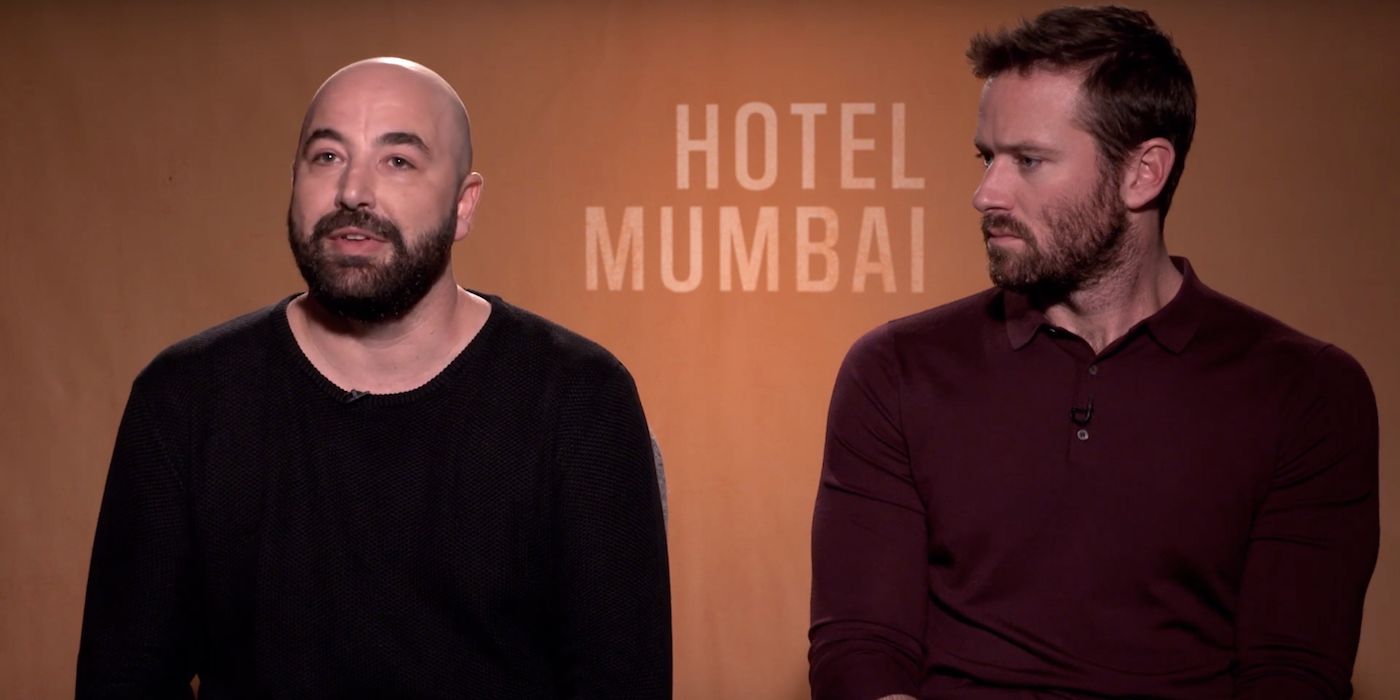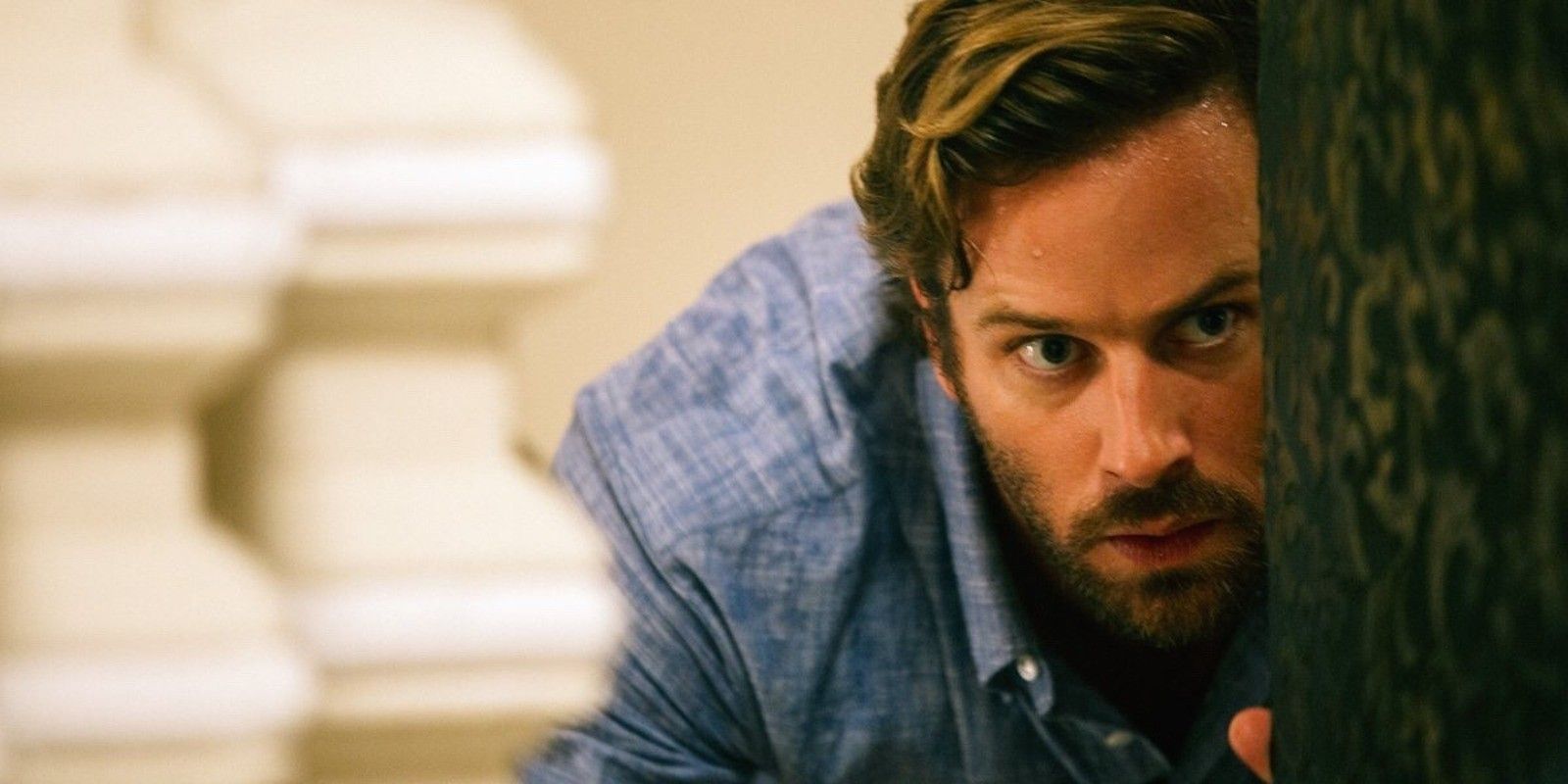Based on the real life terror attacks of 2008, Hotel Mumbai is a gripping, violent, yet inspiring portrayal of horror and humanity, of normal people banding together in an effort to survive against impossible odds. Directed by Anthony Maras, the film stars an ensemble cast which includes Dev Patel, Armie Hammer, Jason Isaacs, and Anupam Kher, all of whom play civilians who are trapped inside the besieged Taj Mahal Palace Hotel.
At a press day for Hotel Mumbai, Screen Rant spoke with director Anthony Maras and star Armie Hammer about the making of the film. They discuss the tension that comes from staging true events for the screen, as well as the director's unique method of keeping his actors on edge in between takes. They also talk about the film's unique approach to exposition, relying almost entirely on real life news footage to move the plot forward outside the events of the Taj hotel.
Related: Hotel Mumbai Trailer
Armie Hammer: What's shakin'?
This movie had me shaken, to the core!
Armie Hammer: Well played.
Thank you, thank you. It's as harrowing as it is inspiring. I wanted to ask you something, which is why I'm here. When you're doing this movie that is so deadly serious, completely straight, how is the atmosphere on set in between takes and in between days, even? Is it morbid? Do you guys have a good time in between shots? What is that experience?
Anthony Maras: I think it depends on the actors involved. Some, like Armie, are able to switch on and off between takes and get straight back into it. Others, like Amandeep Singh, who played one of the young gunmen, went full method. In fact, with the gunmen, we had a bit of a tactic; in between takes, because the three of them had never actually acted on a film of this scale before, they would just stand and literally just stare at the wall.
Armie Hammer: It was really disconcerting. They just stared at the walls. Also, one thing that Anthony did... There were giant speakers hidden around the set, and he would have the remote on his phone, and every now and then would push a button, and the sound of machinegun fire would break out, or, like, grenades. So, like, in between takes, you never had a moment to just relax. You always heard gunshots or grenades when you weren't expecting it. It kept everybody really tense.
Anthony Maras: On edge, yeah.
Armie Hammer: You sadist.
The whole movie, from start to finish, is just white-knuckle tension. I was on the edge of my seat the whole time. Was there ever a concern that it would be too much, or did you feel a responsibility to depict things as they were?
Anthony Maras: I think, counter-balanced with the tension, is a story about intense humanity, this idea of people of all different races, religions, ethnicity, coming together and showing true courage and heroism. And, I think, in order to show the strength and resiliance that these people had, you have to understand the depths of what they went through. So the intention was always to not shy away from the intensity. This is a terror attack. We didn't want to shy away from the reality of that. At the same time, you need the darkness to appreciate the light, and there is a lot of light in this film. These people, who came out the other side of these attacks, had transformative experiences. In many cases, they demonstrated that they were not going to be cowed by this. The Taj Hotel was reopened twenty-one months after the attacks. You had this extraordinary thing happen; you had this image, which we have at the end of the film, or the survivors of these attacks, coming together on the grand staircase, which was a scene of gunshots and fire and bomb blasts, and all the survivors who still worked at the Taj, came back, along with many who came back from other parts of the world, and they locked arms in a symbol of solidarity. And more so than that, just three weeks after the attack, the Taj Hotel and Hemant Oberoi, together, reopened the first of the twelve restaurants after the attacks. And you had people throughout all of Mumbai who came together to experience this.
The exposition in this film is mostly delivered through news reports and what looks like real footage from the attacks. Was that all real? Were any of the news reports staged for the film, or was that all real footage?
Anthony Maras: No, that was raw footage that was used. We went through hundreds of hours to get that, to add a sense of authenticity to it, and to demonstrate that this was a real thing that people were dealing with.
More: Hotel Mumbai – Nazanin Boniadi and Anupam Kher Interview


